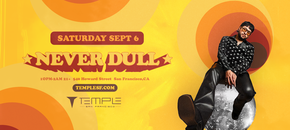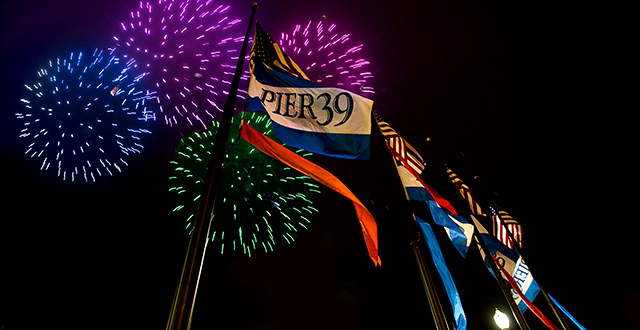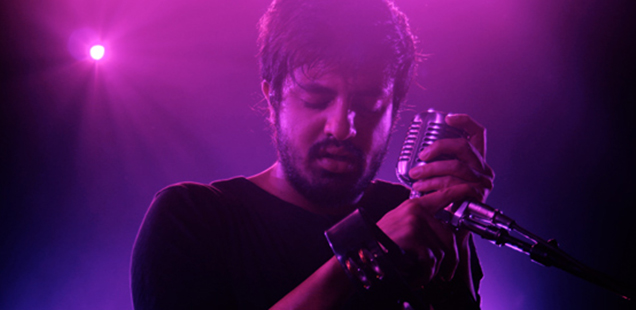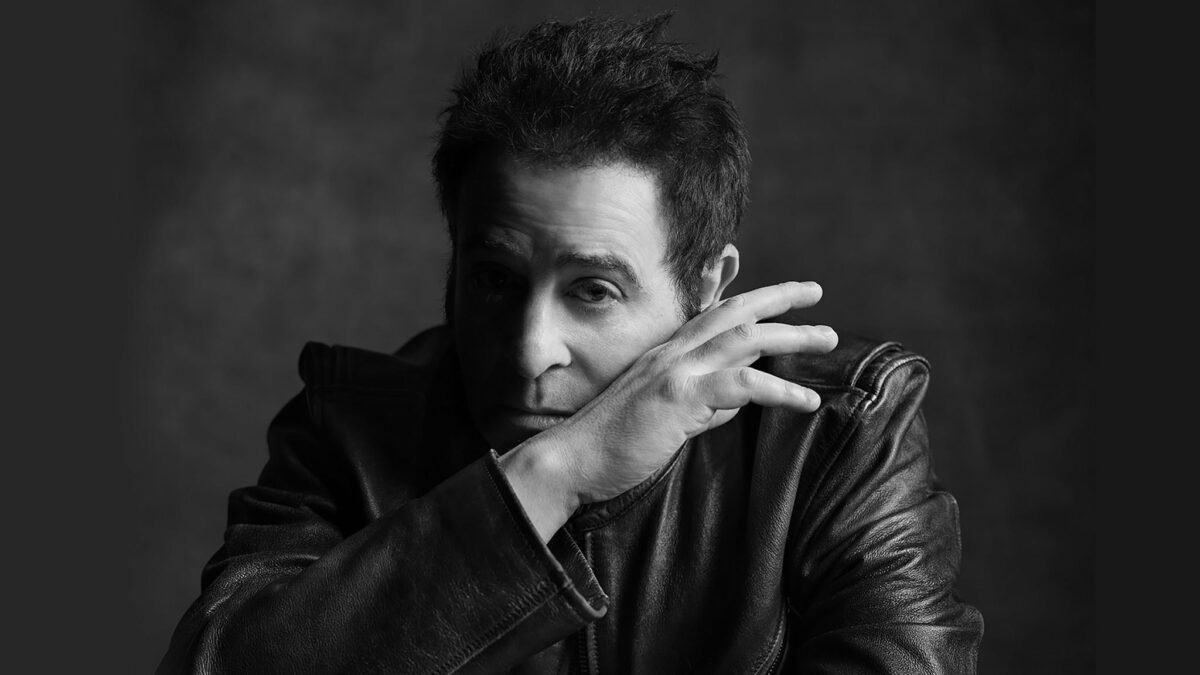Lulacruza’s South American Roots Inspire Unique Blend of Electronic Folk

Lulacruza have gained a lot of hype recently thanks in part to their distinct brand of South American electro-folk. Hailing from Colombia and Argentina, the troupe exhibits raw performances that have garnered a reputation for transporting audiences with intimate, meditative qualities.
Lulacruza are heavily influenced by South American ritual and folklore, masterfully treading the line between avant-garde and electro-acoustic styles. Luis Maurette performs with indigenous instruments like the cuatro, charango and bombo legüero, utilizing electronic processing and sequencing. All this is complemented by Colombian songbird Alejandra Ortiz’s powerful, stirring vocals.
Lulacruza are currently on an 18-city summer tour throughout the U.S. with two Bay Area shows, one at PLACE in Oakland on August 20 and the other at Elks Lodge in SF on August 21. We spoke to Alejandra about the band’s growth through the years, living in the Bay Area, and their collaborations with The Polish Ambassador.
What type of music did you listen to growing up?
I listened to a lot of traditional folk music from South America. Vallenato, cumbia… all the local Colombian styles. I also listened to a lot of Pink Floyd for example and music that came from the States as well. We had a very eclectic radio when I was growing up, so I got to listen to electronic music as well as salsa, merengue, cumbia. So it was a mix of everything.
Who are some of your current favorite artists that you’re listening to?
I tend to listen to very little music. But Luis listens to a lot of music. We do listen to electronic music. There’s an Argentina producer that we love. His name is Chancha Via Circuito. We are part of sort of the same musical scene in Buenos Aires and he’s also playing abroad a lot. We run into him on our tours. We really love what he’s doing. He’s mixing more traditional Andean music with electronic. It’s very beautiful production. Very clear and unique.
When did Lulacruza start performing outside of South America?
We actually started in the States in 2005 when we were both going to school in Boston and Berklee College of Music. We moved to the San Francisco Bay Area together. We started playing there. For our first album, we recorded with some electronic acoustic musicians in the Bay Area. We also traveled to Colombia to record with folk musicians, like drummers, and then we finished the production in Argentina. That was 10 years ago when we started. We had three phases: we would go from Argentina to Bay Area to Colombia and play regularly in those three. We started to get more invitations to go to Mexico, to Costa Rica and to play other cities in states. It started as a travelling project.
What about the Bay Area motivated you to move here?
I feel that the place has a big energy of transformation. Like, if you love the Pacific Ocean and all of the Asian influence. It’s a big part of what draws us there. There’s a lot of people that have been in the academy studying things about consciousness and the way energy works with all Eastern traditions. As well as being on the edge of technology and all that. Also, with like a reverence for nature and with an international community. It’s a good place for us. Now, we live in Buenos Aires, Argentina.
Where did you get the inspiration for your recently launched album, ORCAS?
This is an album that we recorded during my pregnancy. I feel that a lot of the songs have to do with the experience of surrender that comes with falling in love. Falling in love with someone, falling in love enough to have a child and surrendering to change. So it’s a very personal album and it’s very special to me because it’s very tied to motherhood and the whole presence of transformation when you become a vessel for a human being.
What do you miss most about South America when you’re touring abroad?
I think I miss the fruit. I miss the abundance of tropical fruit. I think that the closeness and craziness of blood family. We are part of many different communities in the States and have what we feel is a global family. But there’s something in my blood family that I miss when I’m abroad. An unconditional acceptance. Family is still very strong in South America.
What’s the next step for Lulacruza?
For this tour, we are playing as a trio abroad for the first time playing big sound systems as a trio. We are trying a lot of new things. It’s very exciting to design things we tried in the studio and put into big speakers. I have a lot of new songs that are coming through. I’m excited to be back home. Even though we do have shows in Argentina, I will have more time to work on material for the new album. No date yet.
How did you first get introduced to The Polish Ambassador and decide to put out an album on his label?
He saw us play at some festival so he had asked me to put vocals on some of his tracks. I’ve been collaborating with him as a guest vocalist for some of his tracks. I started seeing him on Facebook. When we were preparing for this tour, I asked myself who do we want to play with when we come back to the States? I saw he was doing a permaculture action day for his tour. Every time he plays a show, he brings together local organizations and his fan base together to work on things that are needed for the communities he’s visiting.
We were very inspired by his vision and actually getting hundreds and thousands of people back into the Earth. Partying with a purpose. Partying not just to forget, but to get together to build a more sustainable world. We were so inspired by him. We told him we had a new album and we were coming to the States. He said he would love for us to be on his label. We started being a part of the collective and continue to inspire each other through different ways that we both use music as a vehicle for transformation.





